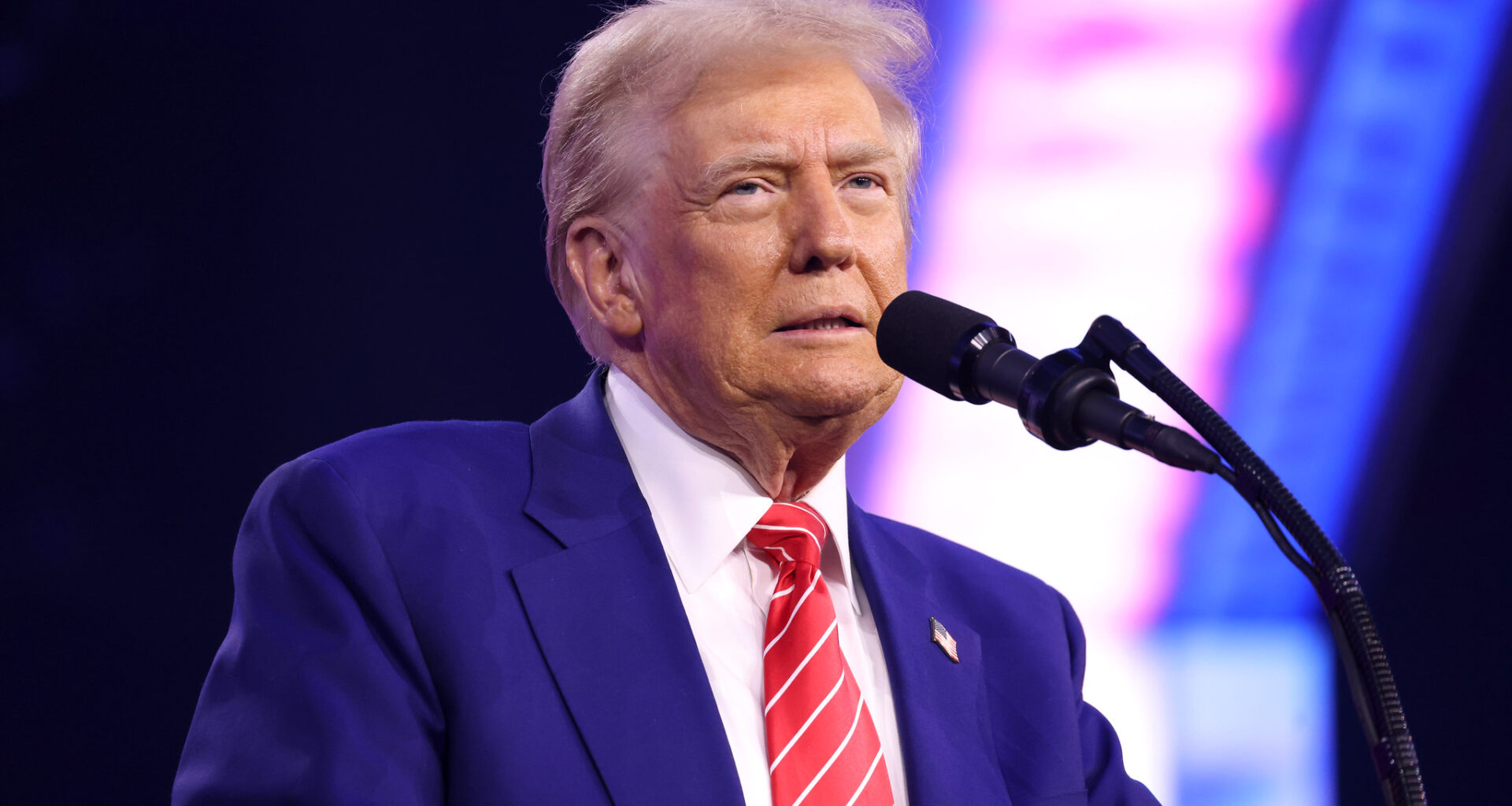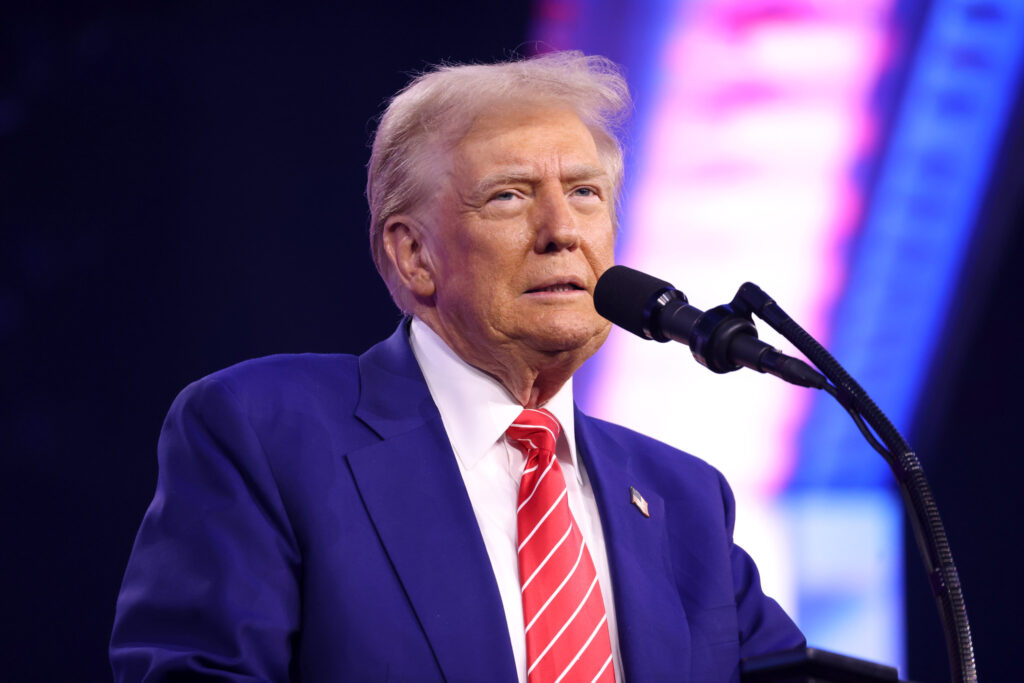
Secretary Rubio’s statements following the trial of Alvaro Uribe reveal the hypocrisy of the Trump administration in Latin America. Credit: Gage Skidmore, CC BY-SA 2.0 / Flickr.
The recent statements by U.S. Secretary of State Marco Rubio and several Republican members of congress regarding the judicial conviction of former Colombian President Álvaro Uribe are not only interventionist, but they reveal a troubling hypocrisy in the official discourse of certain U.S. power sectors concerning justice in Latin America.
Baseless accusations against the government of President Gustavo Petro, whom they accuse of manipulating the judiciary, seek to undermine the legitimacy of a ruling issued by an independent judge after a months-long process, under public scrutiny, and within a judicial system featuring strong institutional checks and balances in a consolidated democracy.
Secretary Rubio’s statements and the Trump Administration’s hypocrisy in Latin America
The attitude of President Donald Trump’s administration, along with the inflammatory statements by some Republican congressmembers following the ruling against former Colombian President Álvaro Uribe, exceeds all expectations for a hostile administration.
The head of U.S. diplomacy called the ruling “a worrisome precedent,” asserting that the trial resulted from “politicized justice” and accusing the presiding judge, Sandra Heredia, of being “radical.” Yet: not a single argument or piece of evidence supports these harsh and unfair accusations.
Following the administration’s reaction, several Republican senators wrote comments on social media echoing this sentiment, even threatening the possible imposition of tariffs on Colombia if the ruling is upheld – an attitude mirroring the tone used against Brazil regarding the trial of former President Bolsonaro.
The Republican criticisms focus on the idea of “politicized justice,” yet to date, not a single piece of evidence has been presented implicating the Colombian Executive branch in the ruling against Uribe, who was convicted this week for witness bribery and procedural fraud.
These statements not only disregard the principle of the separation of powers, but they are also paradoxical coming from figures who have defended judicial autonomy as a pillar of democracy in their own country, especially concerning cases involving their political adversaries.
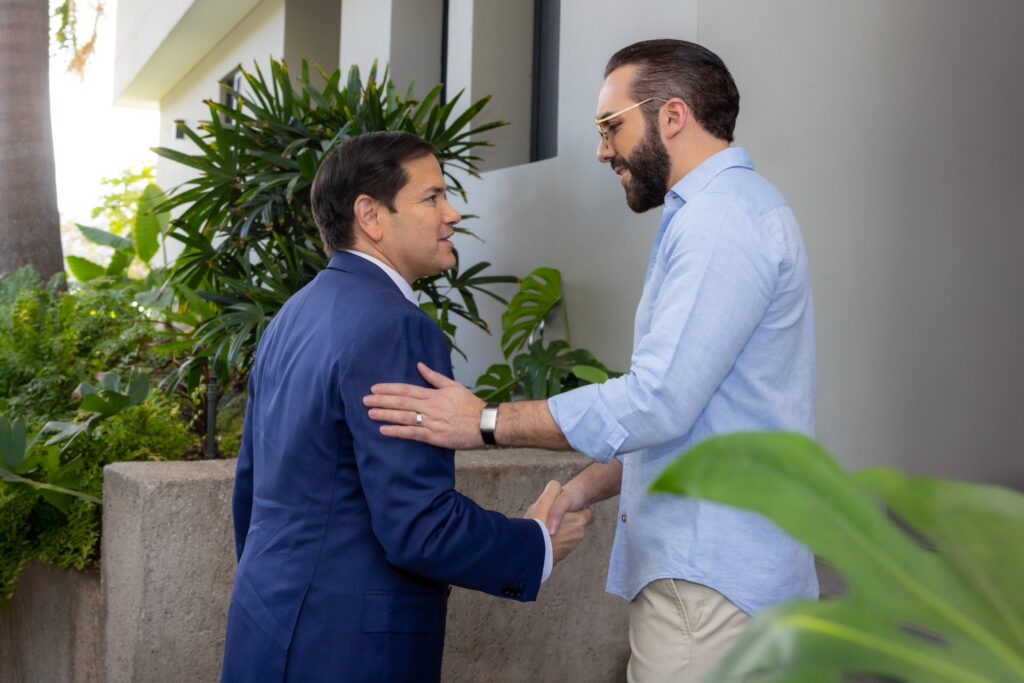
Credit: Presidency of El Salvador.
A trial initiated by Uribe’s own complaint in 2012
Another clarifying factor is that the trial against Álvaro Uribe began 13 years ago, following a complaint he himself filed against Senator Iván Cepeda for allegedly seeking witnesses against the former head of state. After years of investigation, in 2018, the Colombian Supreme Court of Justice dismissed the complaint against Cepeda and opened an investigation against Uribe, accusing him of attempting to buy false witnesses against the senator.
All of this occurred during the presidencies of Juan Manuel Santos (2010-2018) and Iván Duque (2018-2022), making any alleged interference by the left, embodied by Gustavo Petro, impossible.
The truth is, that it was Uribe who attempted to evade justice in 2020 when he resigned his Senate seat so his case would move from the Supreme Court to the ordinary justice system.
There, prosecutor Francisco Barbosa, appointed by the Duque government (from the same party as Álvaro Uribe), twice unsuccessfully tried to dismiss the case.
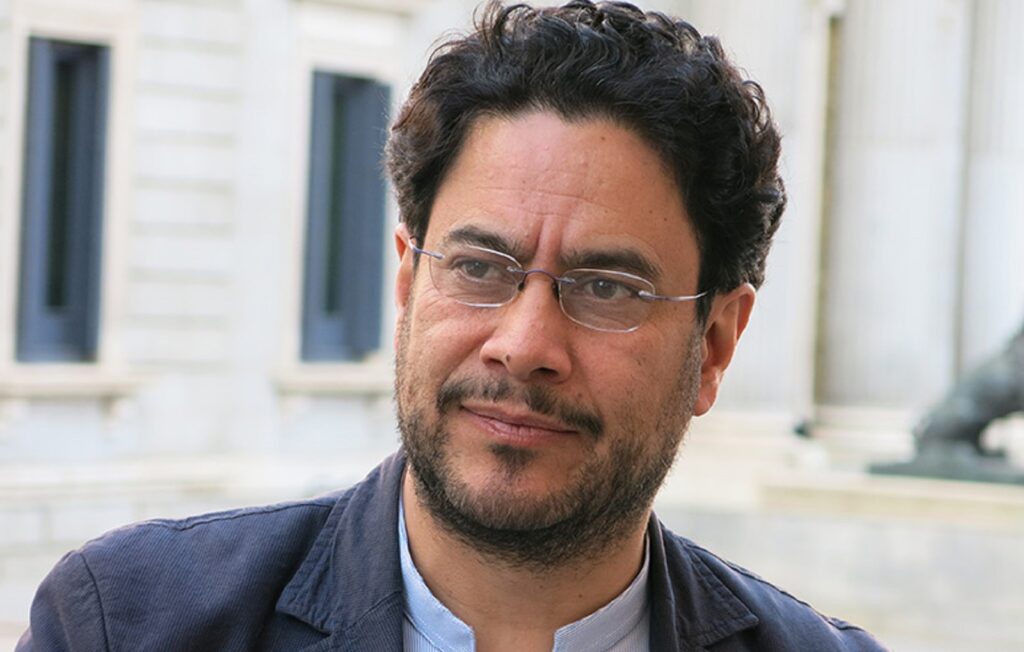
The trial against Álvaro Uribe began in 2018, following a complaint he filed against Senator Iván Cepeda six years earlier. Ultimately, the investigation shifted focus, and Uribe was charged with bribery and procedural fraud. Credit: IvanCepedaCastro, CC BY-SA 4.0 / Wikimedia.
A hypocritical US attitude based on ideological enemies in Latin America
The most alarming aspect is not so much the ignorance about how Colombian justice functions, but the clear ideological selectivity underlying these reactions. When Brazilian justice advanced the trial against former President Jair Bolsonaro–accused of instigating a coup attempt after losing the 2022 election–the Trump administration reacted with commercial threats and the imposition of tariffs.
Marco Rubio, once again, questioned the legitimacy of the process without evidence and defended the far-right former president as a victim of alleged political persecution. No mention of institutional respect, no defense of the Brazilian rule of law.
On the contrary, when an Argentine court upheld the conviction of former President Cristina Fernández de Kirchner for corruption in June of this year, during the term of current President Javier Milei—a leader openly aligned with the American far right—Washington maintained a deafening diplomatic silence.
There were no outraged tweets from Republican senators, no press conferences warning about “lawfare” or political persecution. On the contrary, three months before the final sentence was confirmed, in March, the former Argentine president was banned from entering the United States.
“Cristina Fernandez de Kirchner and Julio De Vido [Minister of Planning in the Fernández government] abused their public offices by orchestrating and personally benefiting from multiple bribery schemes involving public works contracts, which resulted in millions of dollars being stolen from the Argentine government. Multiple courts have convicted CFK and De Vido for corruption, undermining confidence in Argentina’s government and future among the Argentine people and international investors,” stated the communiqué signed by Marco Rubio at the time.
This double standard is as evident as it is corrosive to the credibility of U.S. foreign policy in the region. Defending justice as a universal value loses all force when invoked solely based on ideological sympathies. It is especially offensive to Colombians who, after decades of armed conflict, political corruption, and impunity, are now seeking to build a democracy with stronger and more independent institutions.

Credit: Eneasmx, CC BY-SA 4.0 / Wikimedia.
Procedural guarantees for Alvaro Uribe in the Colombian judicial system
Álvaro Uribe’s conviction should not be read as a victory for any party, but as an advance for the Colombian judicial system, which has demonstrated its capacity to judge even the country’s most powerful figures.
Nevertheless, the Colombian judicial system offers the former president all procedural rights, as it does for any other citizen. Under this framework of guarantees, recognized for its tiered structure and right to due process, the former president’s defense has multiple avenues to seek a just ruling in accordance with the Constitution and the norms of the Criminal Code and Criminal Procedure Code.
In the first instance, the trial was conducted by a criminal judge in Bogotá, who issued a ruling after evaluating evidence and arguments from both sides. This decision is not final: the defense has the right to appeal to the Superior Court of Bogotá, a second instance that will comprehensively review the facts, evidence, and application of the law.
If the Court upholds the conviction, there remains the possibility of filing an extraordinary appeal for cassation before the Supreme Court of Justice. This appeal does not re-evaluate the evidence but reviews the case for serious legal errors.
Furthermore, the former president has had legal representation, the right to confrontation, the presumption of innocence, and a public trial. These guarantees ensure that Uribe faces a fair, transparent, and lawful process.
The fact is that Álvaro Uribe, despite having a conviction for two serious crimes against him, remains free because his presumption of innocence prevails, as his lawyer reminded us, until the ruling is final.
Congressman McGovern: A beacon of reason for hope in the US
In this context, the voice of Democratic Congressman Jim McGovern stands out as a beacon of reason. Yesterday, he publicly criticized Marco Rubio’s statements.
“It is dangerous and dishonest for a U.S. senator to use his position to defend impunity,” McGovern said, recalling that the fight against corruption should be supported, not sabotaged, by international allies. McGovern, known for his record in defending human rights in Latin America, made it clear that supporting Uribe cannot mean endorsing the cover-up of crimes.
His words offer relief and hope for those who still believe in diplomacy based on principles rather than ideological interests. The United States plays a key role in the region, but its moral legitimacy will depend on its ability to act consistently. Defending judicial independence means respecting it even when its decisions do not favor political allies.
If Washington wants to rebuild bridges of trust with Latin America, it must abandon the cynicism of double standards and recognize that justice cannot only be valid when it punishes the ideological enemies.
The reaction to the Uribe ruling is a test. Not for Colombia, which has already demonstrated its institutional maturity, but for the United States, which must decide whether it wants to be a partner of the rule of law or of power.
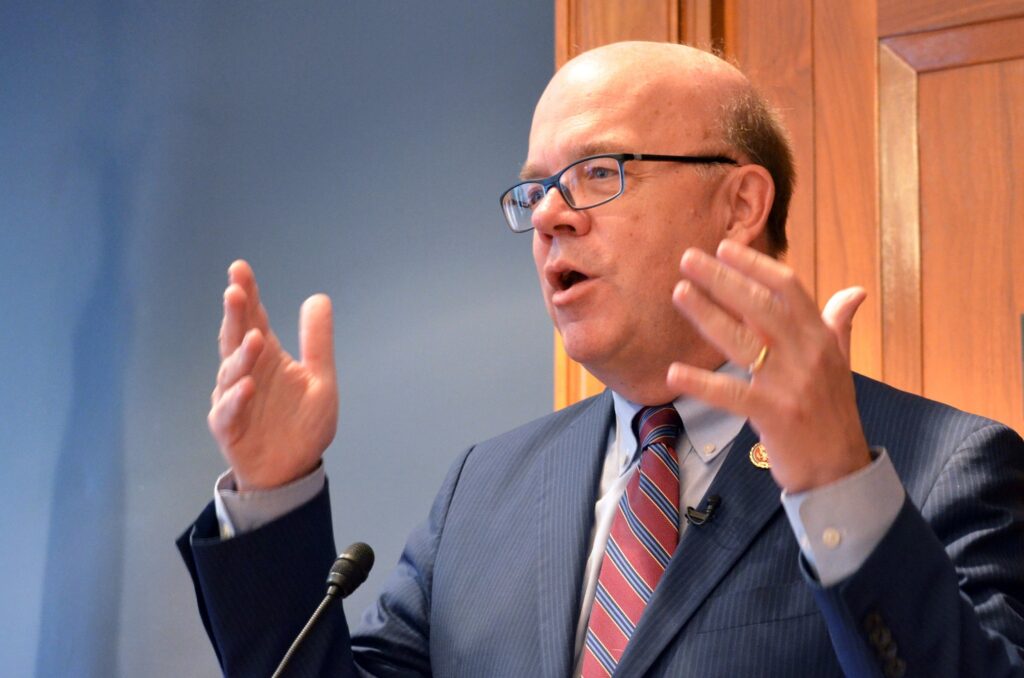
Congressman Jim McGovern’s statements, contradicting the Secretary of State, are a sign of good sense and hope for the restoration of common sense in U.S. foreign policy. Credit: Pomed, CC BY 2.0 / Flickr.
